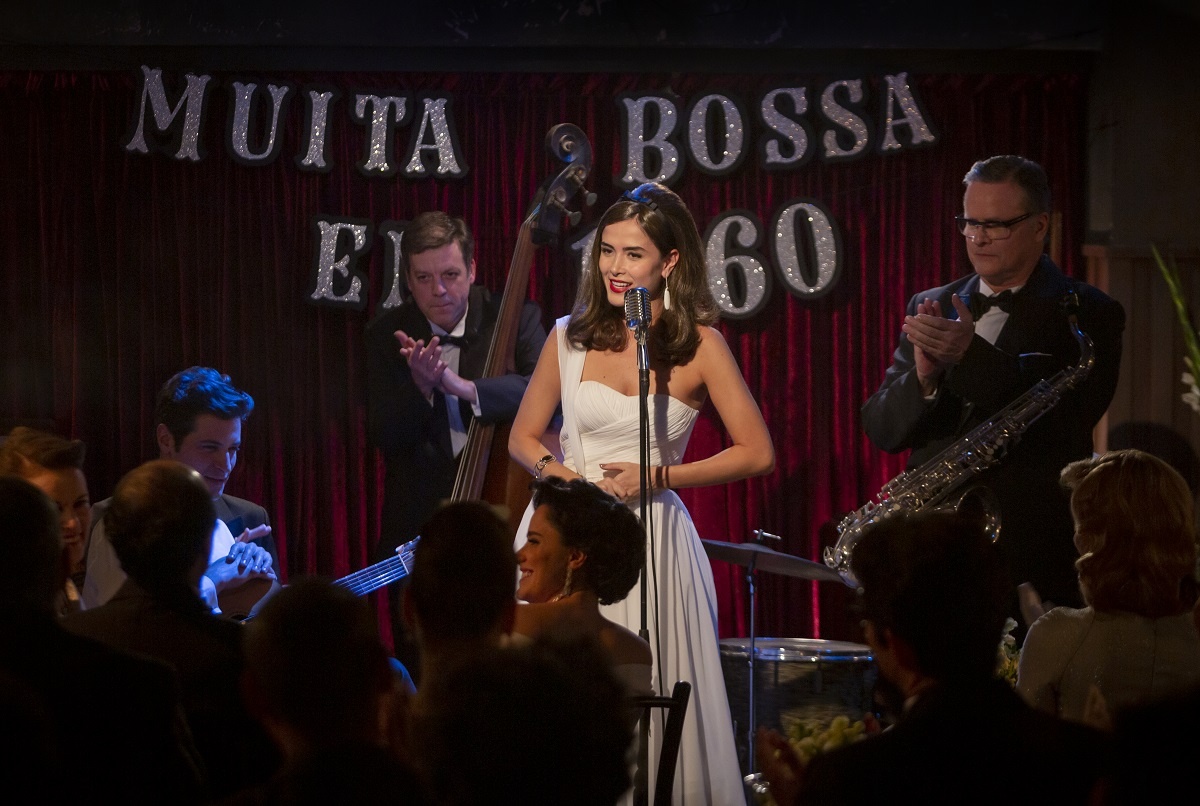Spirited. Provocative. Profound.
Coisa Mais Linda proves an incredible Netflix find which explores so many of the turbulences of modern womanhood – from romance to abandonment, cluelessness to independence, desolation to excitement – all deliciously mixed in with samba music and Rio sunlight.
Translated as ‘Every Beautiful Thing,’ the Brazilian Netflix series essentially follows the misadventures of Maria Luisa (Maria Casadevall) in the late 1950s when she moves from her native Sao Paolo to join her husband, Pedro, in opening a restaurant together in Rio de Janeiro. What she unfortunately finds upon arrival however is a run down premise, a shabby apartment, and the crippling reality that all Pedro has left for her is the shame of being a wife to someone who has disappeared with his mistress and filched all of his wife’s money for good measure.
The heartening consequence however (after she admittedly attempts to set Pedro’s clothes and the building on fire) is that Maria Luisa turns the scene of desolation into one of opportunity. She sacrifices her luxurious and sheltered life with her parents to pursue her dream of opening a music club, the series then following the result of breaking off from the conservative mass of society to experiment in Bossa Nova music and creating a space that is open to everybody.
The initial element that invites the viewer in is the amalgamation of sensuous European aesthetics alike to Mamma Mia and Mad Men combined. It exhibitions luscious sea scapes and wealthy minimalism, the American jazz filtered with samba rhythms and set to portuguese making for aesthetic musical richness. This may seem then like a summery getaway by screen then, however the intoxicating escapism actually serves as a trojan horse for the true gravity of the situation. In acknowledging the marriage of two musical genres together, this proves aptly metonymical for the class and racial disputes at play.
Malu (as affectionately transformed) may be our first leading lady, but who also proves equally important is Adelia (Pathy Dejesus) – an impassioned and dedicated mother who has been working since the age of 8 to first provide for her family and now for her daughter. It’s a riveting awakening indeed to see the contrast between the friends and then business partners when Adelia impressively reminds us that whilst one of them has the privilege to seek work for freedom (the option to run back under the wing of her father should things plunder a la Rachel Green), the other has had to work for survival. The show thus addresses a feminist discrepancy that it becoming more openly acknowledged today: that feminism for one does not – and cannot – be necessarily applicable to the other; empowerment for white women falling flat when it comes at the expense of women of colour.
It is impressive then how sensitive the show is to this, as even other female protagonists, ranging from Malu’s childhood friend Ligia (Fernanda Vasconcellos) to her supportive mother Ester (Ondina Clais Castilho) are cruelly quick to assume Adelia plays a role to them that is lesser. Malu however not only addresses Adelia as friend but as business partner with a fair 50/50 split; this not only being revolutionary for the time period (as if a woman owning a business wasn’t already dancing on enough eggshells) but which reinforces the value of looking past colour and creed as both Adelia and Malu embrace the human essence which lies beneath.
What then really makes the show is the four women at the forefront, Maria Luisa not only being buttressed by Adelia, but by the spritely Ligia and the evocative Thereza (Mel Lisboa). It has admittedly been a long time, I think, since there’s bern a more invigorating and relatable heroine than Malu – her apparent confidence, sensuality actually being balanced with elfin ignorance and naivety; the fact that half the time she really has no idea what’s doing only making her all the more charming. It’s moreover arguable that in a group of female leads there’s always one you like the least or lags behind the rest, so it is no underestimation to say how refreshing it is to be able to love all four of them.
This is probably down to how, though they all revolve in the same circle, they each have their own issues and tackle demons from different perspectives. Ligia may want to pursue her dream of becoming a singer, yet she is beaten down by the back hand of her politically ambitious (and nauseatingly insecure) husband into trophy-wife submission, whilst the sexually adventurous and open Thereza is haunted by a more intense homoerotic encounter, along with memory of her stillborn child still stagnantly hanging over her.
The fact that each woman and story line is so different and brilliantly written means then that there is no corner of the story that feels lacking or ill-expressed. It rather proves that the show has a Virgilian way of adopting aged tropes and transforming them into something new, as if the our understanding of the difficulties that women face are able to become more nuanced given not only the quirks of a different time but the intensities and expectations of a different culture.
This show then is truly about and for women; each surviving in a malicious man’s world in the way they best know how. Some are fortunate enough to pick up the gauntlet and power against the patriarchy, but we also have to acknowledge how some women bow before it – the more piteous being because they are forced as opposed to the more repugnant who seem to choose. Coisa Mais Linda truly is an underrated gem with heart beneath the sun and superficiality, making it amazing tv whether you want emotional intellectual engagement, or the simple summer romance of colour and musical abundance.
Image credit: TV-aholic’s TV Blog

